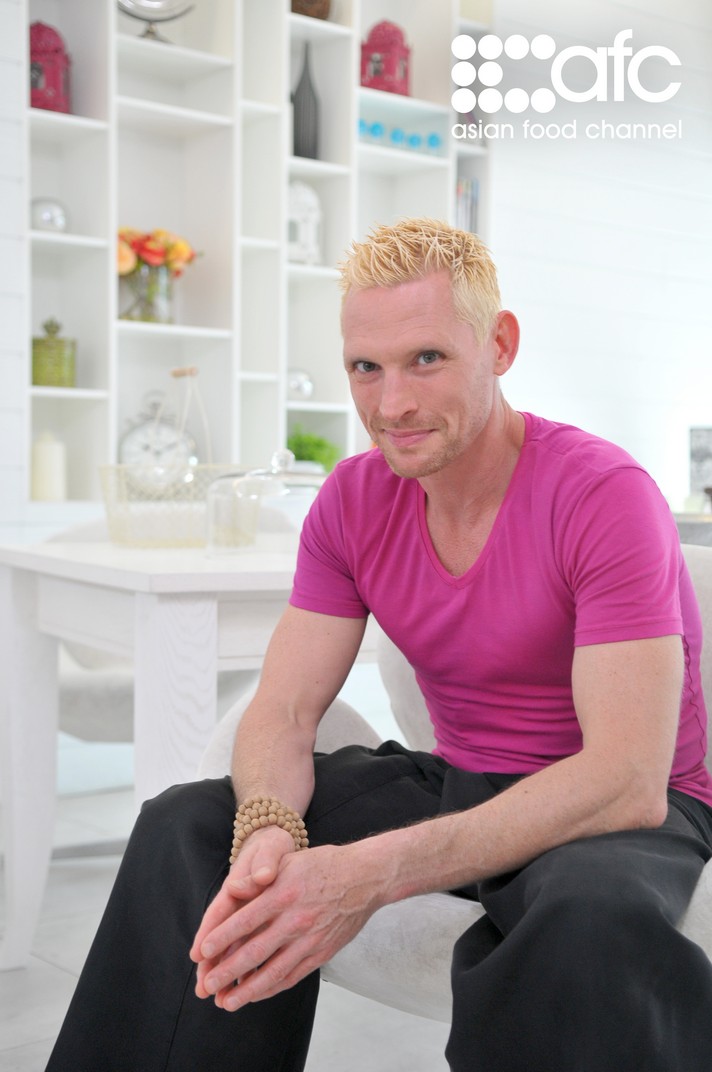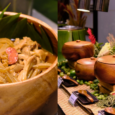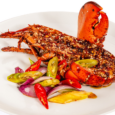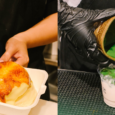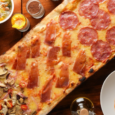We are what we eat. And this doesn’t only refer to the dishes that make up our meal, but also to the personal stories attached to each one. Like the weekly Sunday lunches prepared by our grandmothers, which in one way or another, have brought the family closer together. Or the mind-blowing meal one had in a restaurant that led him to pursue a promising career in the restaurant industry. Yes, food and the experiences that come with it help build character. And it is with this that Asian Food Channel celebrity chef Emmanuel Stroobant based his new cooking show on as he shares not only the recipes that marked his life but also shares personal memories about each one.
“When I was asked to do the show, the first thing that came to mind was the things I cook at home. Nothing complicated but there’s so much love put into it,” he said during his recent visit to Manila. “These are simple recipes that are recreated with love. For example, I shared a recipe for Crème Brulee, which my dad used to do. Each dish is backed up with a story. It’s the first time that I’m also sharing recipes from my restaurants. Chef in Black was more of a lifestyle traveling show. With my new show 36 Ways to Live, I’m speaking more from my heart.” Much like his show, Stroobant opened himself up to When In Manila and shared his humble beginnings, the things he had to give up and more.
Not many know how you actually started in the business. What was it that led you to become a chef?
Like everybody, I didn’t know what I wanted to do when I was young. There was a time when I wanted to do law, specifically criminology. I had to save for my studies and since I needed money, I worked as a dishwasher for one of Belgium’s best restaurants. I wasn’t so much interested with the food back then. I got more passionate about what was happening in the kitchen, how the chef orchestrates a whole brigade, manages people to work in teams, and make sure nothing was left behind. The kitchen had a nice atmosphere, nice spirit and that got me interested. Just to be part of a team that’s dedicated to a course.
Did you grow up with a family who was big on food?
When I was six years old, my dad ran a café serving things like Bolognese and beef skewers. And then there was always good food served at home. And actually that’s something I miss. People today aren’t sharing food on the table anymore. We are losing the spirit of people sitting down, sharing stories and enjoying the food cooked by their moms together.
What did you learn in the kitchen the hard way?
Oh my God, everything. I would say that when you’re passionate to do something, sometimes you have to pay the price. I went through a divorce, can’t remember spending Valentine’s day with my wife, most of the time I leave the kitchen at 1AM and my friends would be halfway through the party when we arrive, there’s a lot of sacrifices that I make to be able to do something that I want to do. The hours are just long. That’s the hard part, I believe.
But then it has allowed you to travel and isn’t that a good thing?
It has many perks. It has allowed me to go around the world and do a cooking show. The job itself is beautiful is because I make people smile. Putting happiness on a plate is a form of art. Yes, we work long hours and sometimes we don’t even see daylight. But we have the friendship between us chefs, theamazing exchange of ideas and cultures, and I just never stop learning. It’s beautiful.
Learn more inspiring storiesand delicious recipes from Emmanuel Stroobant on “36 Ways To Live”, Mondays at 9:30PM, exclusively on the Asian Food Channel.
by Angelo Comsti
Celebrity Chef Emmanuel Stroobant Shares His Recipes and Life

